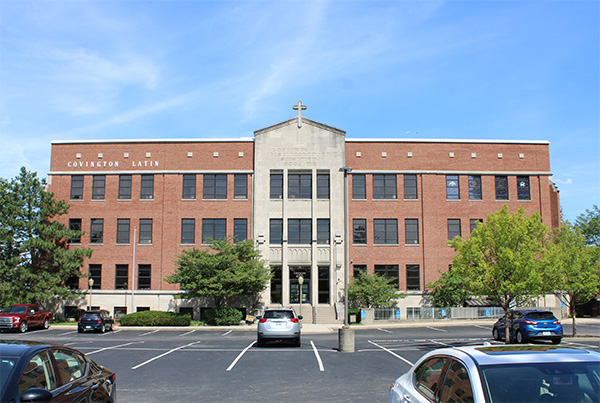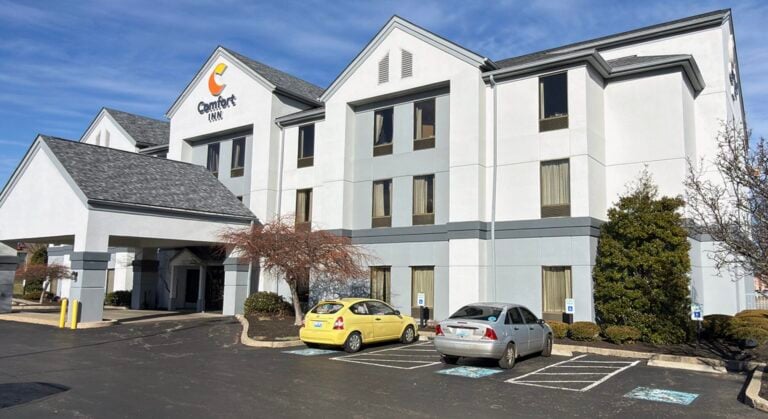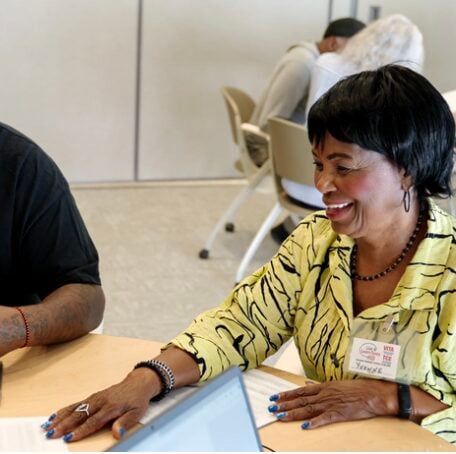By Jack Brammer
NKyTribune reporter
Gov. Andy Beshear made an unusual historic move Monday by presenting his $136.6 billion two-year state budget plan before lawmakers return to Frankfort in session in January.
Beshear’s “Forward, Together” budget for fiscal years 2024-2026 includes significant calls for improvement:
an 11 percent pay hike for all public school educators and staff, pay raises of 6 percent in the first year and 4 percent in the second for state workers, full funding of universal pre-kindergarten for 4-year-olds and support for child care providers.
The wish-plan has $20 million for a convention center in Frankfort. Another one is planned in Ashland.
It also uses one-time funds to excuse Kentuckians from paying tolls on three Louisville bridges in 2024, moves major infrastructure projects forward, grows jobs, boosts public safety, expands health care, preserves the state’s $3.7 billion rainy day fund for emergencies and pays down on the state’s largest pension liability.

Beshear, a Democrat who was sworn into office last week for a second four-year term, seeks for Northern Kentucky in his budget $7.5 million for the Covington Central Riverfront project. It is a landmark development project on the former 23-acre IRS site, a block south of the Ohio River next to the Northern Kentucky Convention Center. The state money is to be matched by the city for infrastructure.
Northern Kentucky Life Sciences Lab got a proposed investment of $15 million to the City of Covington to support the construction and fit-out of a shared research and development lab facility to serve the rapidly expanding life sciences research and development sector in the region in the ’22 budget. This initiative is a collaboration among the City of Covington, several life sciences companies, the regional economic development organization, the entrepreneurship ecosystem, and higher education. The executive summary of the ’22-24 two-year budget is here.
Beshear unveiled his budget in a pre-recorded, 34-minute speech Monday night on the statewide Kentucky Educational Television network. He went over details in it earlier in the day with the media only for background purposes.
During his televised address, his desk had on it a white coffee cup with the words: “We can’t be doin’ that.”
That was one of the phrases Beshear often used during the COVID-19 pandemic. It inspired private citizens to create the Citizen Team KY Fundraiser website to sell various Beshear merchandise to help support people hit hard financially by the deadly virus.
The governor’s plan is now in the hands of legislators. Beshear said he had talked to some legislative leaders about it but missed a meeting last week with House Speaker David Osborne because of the funeral of former Gov. Julian Carroll in the Capitol.
Beshear decided to release his 2024-2026 budget plan after the state House in the 2022 General Assembly year presented its budget plan before Beshear did his. It was viewed as a swipe to the governor by the Republican-controlled legislature but the Republicans said they simply were ready.
Beshear said the House budget two years did not address all sections of the budget and that the Senate made improvements in it. He said he wants to keep “an open mind” with the legislators on what should be in the final budget for the next two years.
Usually, the governor presents a budget plan in the session in late January. The House then comes up with its plan and lets the Senate take a crack at it.
The final budget document agreed upon by both chambers and signed into law by the governor does not usually emerge until the final days of the legislative session.

Beshear said he was in a good position this year to work on the budget and wanted it to get a good public airing.
“Kentuckians don’t wake up every morning thinking about Democrat or Republican – and neither does this budget,” he said in trying to avoid a partisan debate over any political gain or injury that might occur by presenting a budget plan first.
“We are working to address the things that actually matter to our people … that are important to everyone. This budget reflects our shared Kentucky values of family, faith and community.”
He added, “I know we can work together to makes these investments and continue building that better Kentucky we all want – one where my children and yours can stay right here at home and choose their dreams.”
Much of Beshear’s budget sounds similar to issues he advocated on the campaign trail this year in defeating Republican Attorney General Daniel Cameron in the Nov. 7 election for governor. He also tried two years ago to increase teacher pay and off universal pre-K.
Education
Beshear’s plan spends $1.1 billion over two year for an 11 percent pay raise to all public school employees – including teachers bus drivers, cafeteria workers and janitors.
An additional $545 million each year would be provided to ensure that every school district has sufficient funds for this pay increase.
This increase would bring Kentucky’s average teacher annual starting pay to $42,191. That would bring Kentucky up to 24th in the nation for teacher starting pay in National Education Association rankings.
The pay also would bring Kentucky up to 25th in average teacher salary from its current ranking of 40th in the NEA rankings.
Beshear noted that in many Kentucky counties schools are the largest employer.
“Just imagine the local economic impact of an 11 percent raise to every employee of the county’s largest employer.”
Beshear’s budget also calls for fully funding fund teachers’ pensions. This would cost $118.3 million in the first year and an additional $308 million in the next year. It also would pay for retirees’ medical benefits.
The state’s “shared responsibility” portion of funding the medical benefits requires $65.9 million in the first year and $84.2 million the second year.
His plan also would mean no health insurance premium increases for school employees.
Another big issue for Beshear is $172 million a year to fund universal pre-k for all 4-year-olds to prepare every child for full-day kindergarten.
The state Department of Education estimates that about 34,000 additional Kentucky 4-year-olds would be provided pre-school education.
The allocations to school districts are within the state’s school-paying budget known as SEEK, but they are not allocated through the SEEK formula funding. This guarantees enough money for every school district.
The governor’s budget provides an 18 percent increase in funding for the SEEK budget. Only the 1990 Kentucky Education Reform Act and associated tax increases provided a larger percentage in the formula funding for Kentucky’s education system.
The SEEK program has a base per-pupil of $4,200 in fiscal year 2024 for elementary and secondary schools. Beshear’s budget raises them to $4,368 in each fiscal year, a 4 percent increase. The increase provides $126.4 million the first year and $114.2 million the second year.
Due to higher property valuations and lower pupil attendance, there will be unspent funding in the SEEK in the current fiscal year than ends next June 30. Beshear plans to use $125 million of that for public school transportation.
And the SEEK funding would pay for all but the federal share of the teachers’ employer contributions for every single eligible school district employee at a cost of $9.7 million in the first year and $19.3 million the second year.
The SEEK program also would receive $124.4 million more each year to fully fund local school costs for pupil transportation, a 45 percent increase in funding. Jefferson County has had serious transportation problems this year.
The Beshear budget restores a teacher loan forgiveness program to be administered by the Kentucky Higher Education Assistance Authority with $26.3 million a year.
Child care
To make universal pre-K work and to get more people in the workplace, said Beshear, “We have to support and invest in child care as well. These are the providers who are caring for and helping prepare our earliest learners. And we know that when parents cannot find quality child care, the stress and the anxiety they feel can just become too much and drives many out of the workforce.”
To help, Beshear is including about $68 million in fiscal year 2025 and $73 million in fiscal year 2026 for child care assistance. Of that amount, $40 million a year allows the state to retain the average per-day provider reimbursement rate for the Child Care 5 Assistance Program.
“And about $13 million in existing federal child care development funds will be freed up due to universal preschool,” he said. “And we’re going to make that available to fund and target children from birth to 3 years old to make sure there are more child care slots for them.”
The plan, he said, also allows us to encourage additional private child care slots, with an additional $15 million in fiscal year 2025 and $20 million in fiscal year 2026 from the General Fund that will be included for child care payments, again to providers who care for children from birth to 3 years old, “so that we can have more slots right there as they move into universal pre-K.”
Infrastructure Projects
Beshear’s budget includes another $500 million in grants to county and local governments to provide unserved families access to cleaner water and wastewater systems. If passed, it would build upon the $500 million already allocated in federal dollars since 2021 through a bipartisan agreement with the General Assembly.
Beshear’s budget also pushes expansion of high-speed internet into every home and business by asking the legislature to approve federal grants for distribution.
The budget includes:
• $10 million to provide more affordable housing.
• $300 million to continue and speed up work on the four-laning of the Mountain Parkway in Eastern Kentucky and the I-69 River Crossing.
• $50 million grant fund for repairing bridges and $50 million to support the state’s 58 general aviation airports.
Job Growth
Beshear is proposing another $200 million over the next years to promote job growth: $100 million to prepare mega-development projects and another $100 million for county and regional site development.
Beshear said he knows this work, noting that more than 47 counties have received funding to develop more build-ready sites and an second round of funding is on the way.
To improve Kentucky parks, Beshear is proposing to use the $71 million set aside in a previous session. His plan includes $184 million for projects ranging from the reconstruction of marinas and new conference centers.
He also wants to open an economic development office in South Korea for $500,000 a year.
Public safety
Beshear wants to give more help to state police troopers. He previously worked with lawmakers to increase KSP troopers and officers’ pay by $18,800. He said the state police now have more than 1,000 troopers – the highest number since 2017.
For the next two years, he is seeking an additional $2,500 raise for all KSP troopers and officers and enough funding to add 150 more troopers over the next two years.
His plan also raises the training stipend that the state pays local and state law enforcement officers and local firefighters, and, for the first time, adds certified, part-time local law enforcement officers.
Beshear’s budget will provide funding for two new female-only juvenile detention centers, renovation of the Jefferson County Youth Detention Center and retrofits to four other detention centers.
Health care
To boost mental health services, the governor is adding funding to support mobile crisis intervention services.
“Sending those facing a mental health crisis to the emergency room or jail is not always the answer, and this program provides people with the targeted help they need and deserve,” he said.
Beshear also is supporting the Kentucky Pediatric Research Trust Fund by adding $5 million a year. He is providing $10 million a year to increase rates for relative caregivers who agree to take a child that is already in the state’s custody and is increasing foster care rates by 12 percent or $9.8 million a year.
Investing in local and state government
Beshear’s budget plan takes several steps to invest in local and state government. They include:
• Returns 100 percent of state coal severance tax receipts back to coal-producing counties.
• Give more than $75 million to the Eastern Kentucky SAFE Fund. It builds off the bipartisan work by lawmakers and the administration to create fund for flood relief in Eastern Kentucky and tornado relief in Western Kentucky.
• Spend $209 million to continue to pay down the state’s public pension liability.
See the Governor’s Executive Budget summary of ’22-’24 budget in full here

















